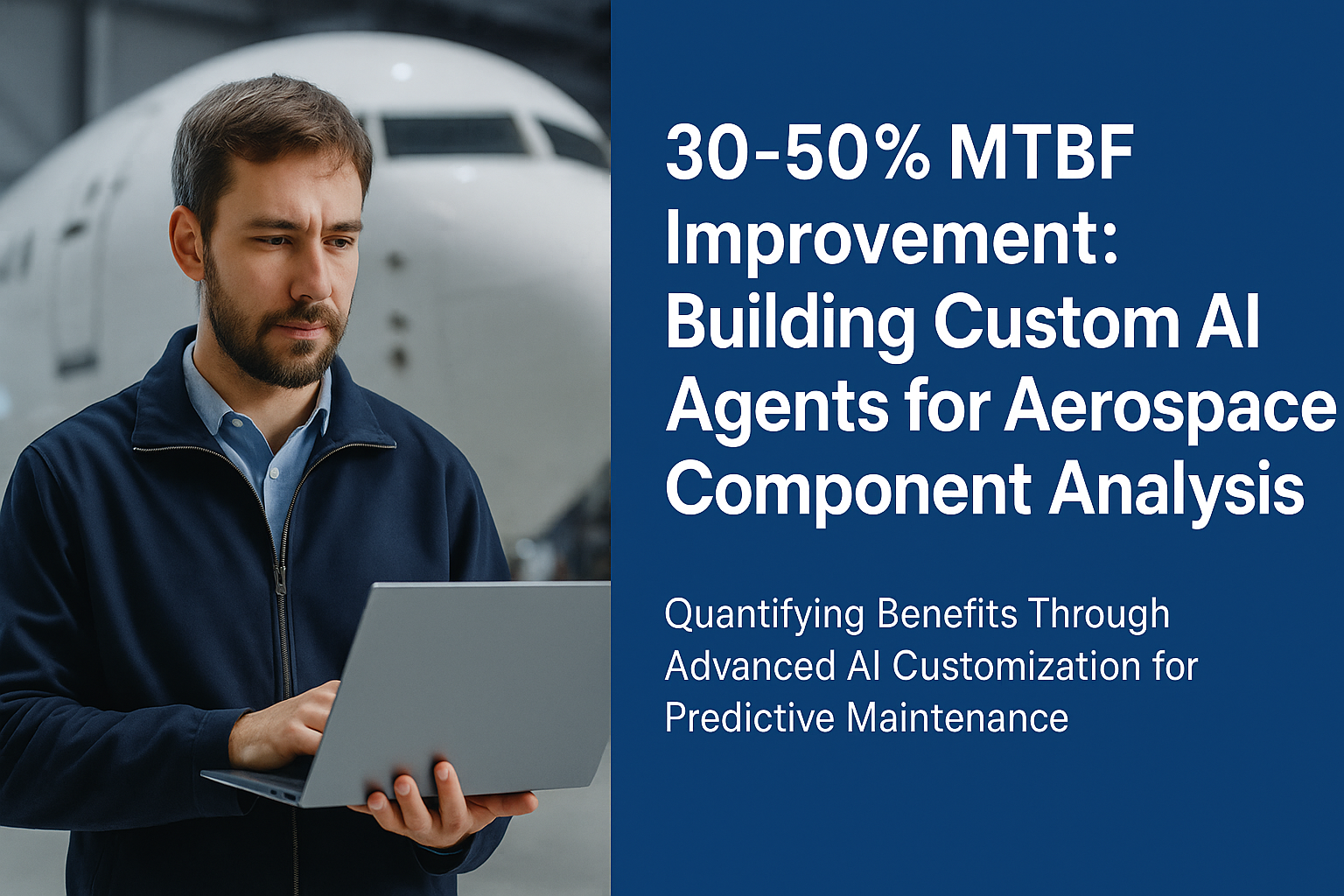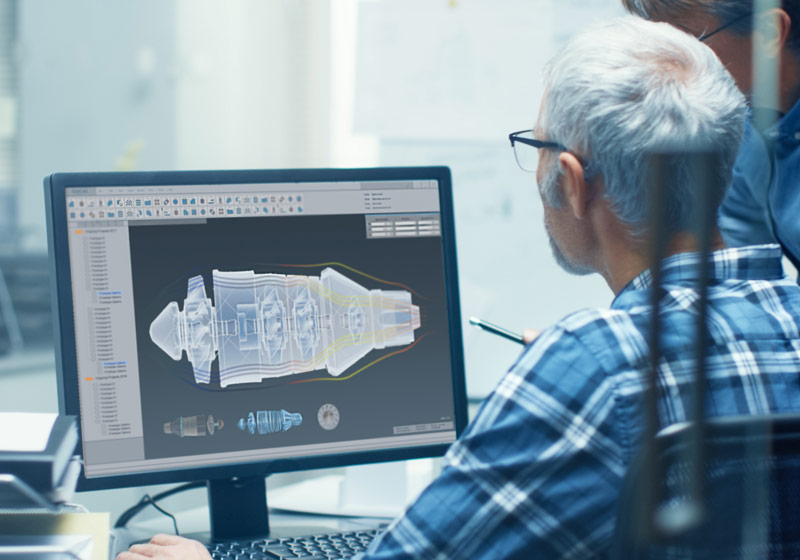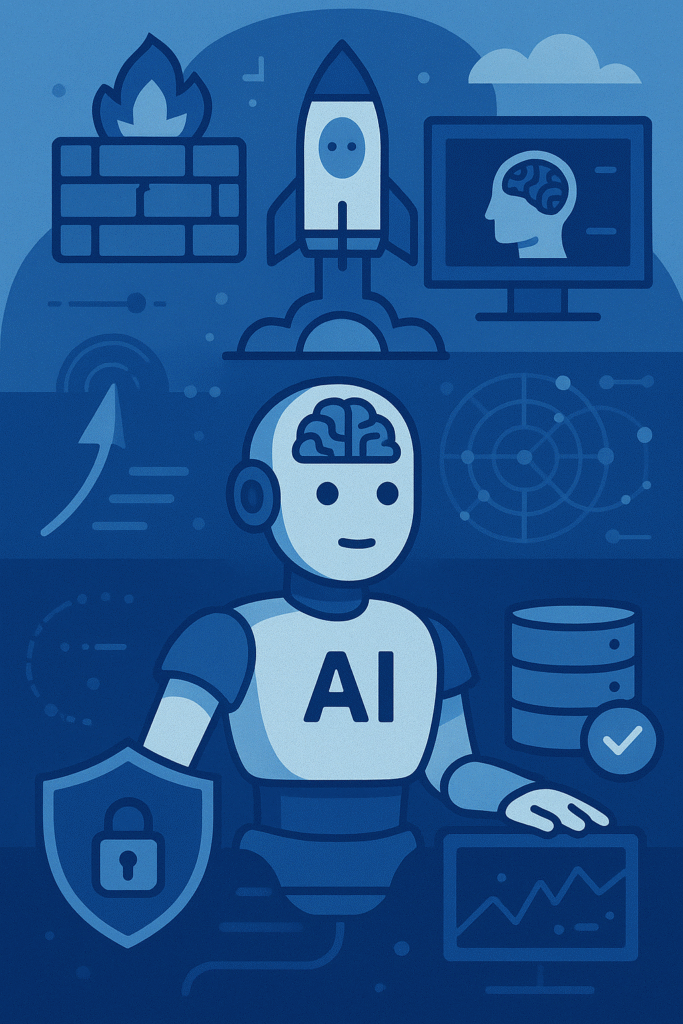🎯 The Aerospace Maintenance Challenge
Unplanned component failures cost the aerospace industry over $40B annually. While predictive maintenance is not new, generic models typically deliver only 15–25% accuracy—insufficient for the high-stakes reality of aerospace operations.
The problem? One-size-fits-all algorithms can’t account for the unique operational stresses, environmental conditions, and failure modes of each component type. A hydraulic actuator under high-pressure cycles behaves nothing like an avionics module subjected to thermal cycling and electromagnetic interference.
Result: maintenance schedules are either too conservative—driving up costs—or too optimistic, leading to mission failures.
🧠 Netray’s Custom AI Agent Architecture
Netray’s approach replaces generic predictive models with component-specialized AI agents that learn from physics-based failure data, operational parameters, and historical maintenance records.
Instead of one model trying to “know it all,” each AI agent is engineered for a single mission—whether it’s detecting seal wear in hydraulics or signal degradation in avionics.
Core Specializations:
Hydraulic Systems: Pressure transient analysis, contamination detection
Avionics Suite: Signal integrity and thermal cycling trend analysis
Landing Gear: Stress and fatigue pattern recognition
APU Systems: Thermal performance and turbine efficiency monitoring
Flight Controls: Actuator wear prediction
Engine Components: Vibration and resonance pattern tracking
🔍 Real-World Performance Gains
| Component | MTBF Gain | Key Insight |
|---|---|---|
| Hydraulic Systems | +45% | Pressure anomaly detection with 89% accuracy |
| Avionics | +38% | 73% fewer unexpected failures via signal degradation monitoring |
| Landing Gear | +52% | Predictive stress analysis prevents gear-up incidents |
| APU Systems | +33% | Optimized thermal and compressor efficiency monitoring |
| Flight Controls | +41% | Actuator wear prediction improves control reliability |
| Engine Components | +47% | Vibration signature analysis detects early-stage damage |
⚙️ The Development Process — 6 Weeks to Deployment
Week 1–2: Component analysis, data pipeline architecture, KPI definition
Week 3: Neural network design optimized for component-specific data
Week 4–5: Model training, validation, and accuracy tuning
Week 6: Integration into production with dashboards and automated alerts
📊 Custom vs. Generic AI — Accuracy Leap
| Component | Generic AI | Custom AI | Improvement |
|---|---|---|---|
| Hydraulics | 31% | 89% | 2.9× |
| Avionics | 28% | 84% | 3.0× |
| Landing Gear | 35% | 91% | 2.6× |
| APU | 24% | 79% | 3.3× |
False Positive Reduction: up to 71% across all systems.
💰 The Business Impact
Annual savings per aircraft: $2.3M
Reduced downtime: $1.45M/year
Optimized inventory: $523K/year
Extended component life: $374K/year
🔮 What’s Next in Aerospace Predictive Maintenance
The next wave of innovation combines digital twins, edge AI, and quantum-enhanced algorithms to push prediction accuracy even further—down to sub-component monitoring, such as individual bearings or circuit degradation.
Emerging trends:
Federated learning to share knowledge across fleets securely
Explainable AI for technician trust and adoption
Interoperable APIs for faster CMMS integration
📩 Let’s Talk
Netray’s proven AI framework is helping both military and commercial aerospace operators move from reactive maintenance to predictive optimization—without overhauling existing infrastructure.
If you’re ready to unlock:
30–50% MTBF improvement
Seven-figure annual savings per aircraft
Higher mission readiness
👉 Contact Netray’s Aerospace AI Specialists to explore a custom deployment plan for your fleet.



